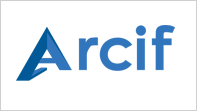English Language Proficiency and Curriculum Development for Air Traffic Control
DOI:
https://doi.org/10.51984/johs.v24i1.3645Keywords:
Language Skills, Aviation English , Air Traffic Controllers , Need Analysis , Learning Needs , ATC Air-Traffic Control, English for Specific Purposes , English Language Teaching ESPAbstract
The aim of this study was to investigate the needs of students in the Air-Traffic Control department. Participants of the study were 30 students in the final semester at the Technical College of Civil Aviation and Meteorology Libya, (TCCAM). The information of the students’ needs was obtained through a descriptive questionnaire consisting of the students current & target needs known as necessities, wants and lacks. The questionnaire results highlighted the most critical English skills needed: speaking and listening. Additionally, the findings identified several important topics -referred to as necessities- that should be included in the syllabus. However, the results manifested some gaps (lacks) between the English topics that should be learnt with the topics that the students had already learnt. Additionally, the students expressed specific preferences regarding the English learning process. The findings, also, revealed the degree of importance of language skills which were necessary for the students future career and indicated their strong needs to improve those skills as a result of the learning styles and the teaching materials used. Moreover, the findings demonstrated a strong willingness among students to improve their speaking and listening skills in English and that the students' dissatisfaction with their teachers, teaching methods, learning styles and input length was clearly identified. Therefore, results of this study will hopefully be essential for the ESP practitioners, aviation English teachers and teaching material designers to improve the quality of the ESP syllabus, more specifically, the aviation syllabus.
Downloads
Downloads
Published
License
Journal of Humanities Policy on Intellectual Property and Plagiarism
1. Commitment to Intellectual Property and Ethics
The Journal of Humanities (JOHS) is fully committed to respecting intellectual property rights and aims to protect the originality and authentic work of authors who submit their manuscripts for publication. The journal takes a firm stand against articles that contain any form of plagiarism and emphasizes the need for all researchers to adhere to the highest ethical standards in scientific research.
2. Anti-Plagiarism Policy
The journal considers plagiarism a serious violation of academic ethics. Therefore, authors must ensure that their work is original and not plagiarized, and that any use of external sources is properly cited and documented according to correct academic standards.
-
Actions Taken: In the event that any plagiarism or academic theft is discovered in a submitted article, the editorial board will contact the author to request a formal explanation within a maximum period of two weeks from the date of notification.
-
Investigation and Decision: After receiving the explanation, the article will be referred to the journal's specialized committees, which will investigate the matter and take the necessary measures, which may include the permanent rejection of the article and the imposition of disciplinary actions.
3. Publication License and Author Rights
The journal adopts the Creative Commons license type Attribution-NonCommercial-NoDerivs 4.0 International (CC BY-NC-ND 4.0), which allows for the following:
-
Attribution: Users are entitled to cite the content published in the journal and use it in their work, provided that the original source and author are clearly credited.
-
Non-Commercial: The published content may not be used for any commercial purpose.
-
NoDerivs: It is not permitted to make any modifications, distortions, or to build derivative works from the published content.
Under this license, authors are required to complete an exclusive license agreement for the journal. Authors retain the rights to their research data and may reuse and share their work for scientific purposes with proper citation.






